23rd MathFinance Conference
13 – 14 March 2023
Venue: School of Finance & Management in Frankfurt
Follow us on Twitter
#MathFinanceConference

Testimonials
The MathFinance conference provides an excellent environment to learn about recent developments and networking with leading experts from both industry and academia
Enjoyable atmosphere, lots of networking, expert speakers, way to learn developments in the industry
The conference is a great opportunity to meet interesting people and develop new ideas on recent market trends. Special thanks to the organizers, they did a very good job

Dr. Beatrice Acciaio
Professor
ETH Zurich
Quantifying Arbitrage
In this talk I will present a way to quantify arbitrage, that allows to deal with model uncertainty without imposing the no-arbitrage condition. In markets that admit “small arbitrage”, we can still make sense of the problems of pricing and hedging. The pricing measures here will be such that asset price processes are close to being martingales, and the hedging strategies will need to cover some additional cost. We show a quantitative version of the Fundamental Theorem of Asset Pricing and of the Super-replication theorem. We study robustness of the amount of arbitrage and existence of respective pricing measures, showing stability with respect to a new, strong adapted Wasserstein distance. Based on joint work with J. Backhoff and G. Pammer
Beatrice Acciaio is Professor of Mathematics at the Swiss Federal Institute of Technology – ETH Zurich since 2020. Before joining ETH, she was associate professor at the London School of Economics. Her primary research interests are in stochastic analysis and optimal transports and their applications in finance, insurance and economics. Beatrice obtained her PhD in Applied Mathematics from the University of Perugia under the supervision of Walter Schachermayer. She was awarded the 2022 Louis Bachelier prize for her contributions to financial mathematics.

Dr. Natalie Packham
Professor of Mathematics and Statistics
Berlin School of Economics and Law
Risk Factor Detection with Methods from Explainable ML
The importance of risk management in the financial industry has increased rapidly since the financial crisis, in particular with regard to financial market stability. A particular focus is on stress testing methods, which captures portfolio risk under adverse conditions. Advances in statistical learning and the availability of large, granular data sets offer new methodological possibilities for stress testing. Financial risk management applications such as hedging, scenario analysis and stress testing rely on portfolio models based on risk factors. In addition to observable risk factors, factor models with non-observable, data-based factors offer interesting alternatives. However, the lack of interpretability of the output is limiting. We develop time-dynamic methods for the interpretability of principal components (PCA), which allow to generate aggregated risk factors from existing risk factors. This aggregation makes it possible to plausibly implement less granular and even global stress scenarios.
Natalie Packham is Professor of Mathematics and Statistics at Berlin School of Economics and Law and Principal Researcher within the International Research Training Group “High Dimensional Nonstationary Time Series” (IRTG 1792) at Humboldt University Berlin. Natalie has several years of industry experience as a front office software engineer at an investment bank, and is frequently involved in industry-related research and consulting projects. Her research expertise includes Mathematical Finance, Financial Risk Management and Computational Finance, and her academic work has been published in Mathematical Finance, Finance & Stochastics, Quantitative Finance, Journal of Applied Probability and many other academic journals. She is associate editor of “Methodology and Computing in Applied Probability” and “Digital Finance” and co-chair of the GARP Research Fellowship Advisory Board. Natalie holds an M.Sc. in Computer Science from the University of Bonn, a Master’s degree in Banking & Finance from Frankfurt School, and a Ph.D. in Quantitative Finance from Frankfurt School.
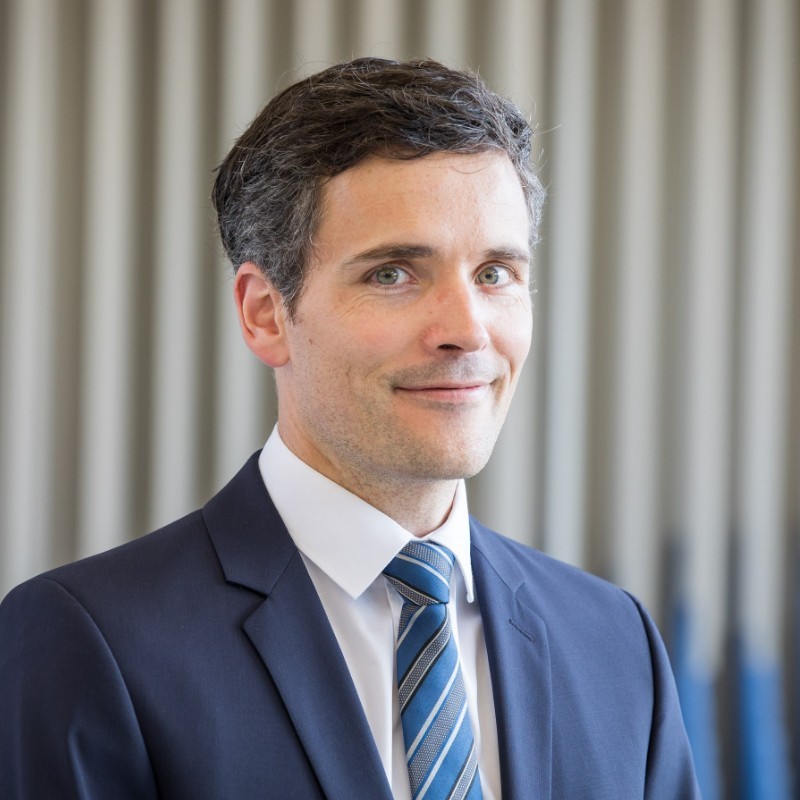
Dr. Markus Hertrich
Senior Economist
Deutsche Bundesbank
An Options-based Approach to Test for the Existence of an undeclared Exchange Rate Target Zone
Many central banks worldwide intervene in the foreign exchange market with the aim of stabilizing the foreign value of their currency. To achieve this goal, they either target a specific level or a specific range, often with undeclared bands. Under these regimes, the design and calibration of hedging strategies for foreign exchange option exposures will be affected. Financial market participants managing their risk exposures in a forward-looking manner, will therefore have to recur to a statistical test to assess the existence of implicit bands. For this purpose, no method exists that can be used currency option markets. The present paper fills this gap and proposes a test that can easily be implemented.
Markus Hertrich is a senior economist in the Directorate General Economics and the Research Centre of the Deutsche Bundesbank in Frankfurt am Main (DE) and a post-doctoral research fellow at the University of Basel (CH). He earned his PhD in economics in 2014 from the University of Basel after completing the Swiss National Bank’s program for doctoral students in economics in Gerzensee in 2010. His professional experience also includes several of lecturing and conducting research in empirical finance and international economics and three and a half years working as a financial analyst within the asset management unit of a major Swiss bank.

Dr. Patrick Jahn
Executive Director
MSCI

Reka Janosik
Executive Director
MSCI
Measuring Climate Impact and Climate Risk and the connection to the Probability of Default
Financial regulators are incentivizing the financial industry to assess their climate-related risks using climate-scenario analysis. MSCI’s climate stress test approach is explained and a special focus on credit risk of corporate debt is given, as climate change may cause rating downgrades and a corresponding widening in spreads. MSCI’s bottom-up climate scenarios can shed light on the impact of climate change on default probabilities and ratings migrations. Beyond any regulatory requirements an overview is given how climate impact and climate risk can be measured and why both is needed to take better investment decisions for a better world and protecting wealth.
Patrick is an Executive Director at MSCI and heads the Analytics Consultant Team based in Frankfurt, Germany. His team supports financial institutions in the GAuS region (Germany, Austria, Switzerland) in a large variety of use cases including portfolio risk assessment, regulatory risk reporting as well as factor investing and portfolio construction. Patrick studied mathematics and informatics at the Johannes Gutenberg University Mainz where he also acquired his doctoral degree in statistics and probability theory.
Reka is an Executive Director in the Risk Management and Liquidity Core Research Team, focusing on general pricing and risk management. She is responsible for credit-derivatives pricing, ETF modeling and long horizon risk management, including climate risk. Before joining MSCI, Reka graduated from Corvinus University of Budapest with a master’s degree in financial mathematics.

Wojciech Mucha
CEO and co-founder
Enterprai
Finally: Real-time OTC Derivatives Positioning and Open Interest Shifts Visualized
Wojciech Mucha, CEO and co-founder of Enterprai has over 10 years of executive experience in fintech. At the age of 23 he joined Bloomberg Professional in London as a Senior Sales and Relationship Manager to expand its footprint within emerging markets.
Later on, Mucha was a Chief Strategy Officer at Conotoxia and Cinkciarz.pl, an award-winning financial services holding company with a portfolio of regulated entities in Europe and the US which includes payment institutions and a brokerage house.
Mucha was elected by the nominating and governance committee of the European Payments Council – a SEPA scheme manager – to sit on its General Assembly. His role led to Conotoxia joining the EPC as one of the Council’s first fintech members, alongside 77 leading European financial institutions. He was also a member of the NACHA Payments Innovation Alliance.
Wojciech is a current Executive MBA candidate at the University of Chicago Booth School of Business and completed a two-month on campus course in Capital Markets and Investments at Harvard University. He earned his Master of Science in International Financial Management at University of the West of Scotland.

Matthew Sandoe
ESG Risk Manager
BNP Paribas & OS-Climate Physical Risk Lead
Physical Climate Risk Measurement: Open Source Solutions and Challenges
This session will comprise an introduction to the management of physical climate risk within financial institutions. It explores some of the typical challenges faced in climate risk measurement along with the progress made via open source pre-competitive collaboration between financial institutions and the research community.
Matt has worked in a diverse range of innovative environments spanning government funded entrepreneurial schemes and food sector R&D, through to taking on global managerial roles in financial risk management where he is currently an ESG risk manager with a focus on climate risk at BNP Paribas. He also leads the open source physical risk initiative for OS-Climate. During his 26 years in finance he has held a variety of roles ranging from commodities risk management, capital markets global risk analysis, reporting & stress testing and Chief of Staff.

Dr. Andrea Mazzon
Lecturer in Financial Mathematics
Ludwig Maximilians Universität (LMU)
Detecting Asset Price Bubbles using Deep Learning
We employ deep learning techniques to detect financial asset bubbles by using observed call option prices. The proposed algorithm is widely applicable and model-independent. We test the accuracy of our methodology in numerical experiments within a wide range of models and apply it to market data of tech stocks in order to assess if asset price bubbles are present. Under a given condition on the pricing of call options under asset price bubbles, we are able to provide a theoretical foundation of our approach for positive and continuous stochastic asset price processes. When such a condition is not satisfied, we focus on local volatility models. To this purpose, we give a new necessary and sufficient condition for a process with time-dependent local volatility function to be a strict local martingale.
Andrea Mazzon is Lecturer in Financial Mathematics at the Ludwig Maximilians Universität (LMU) in Munich. He owns a PhD in Mathematics in Natural, Social and Life Sciences from the Scuola Superiore di Studi Avanzati of Trieste. He is project leader for the LMU and member of the Quality board of the GrEnFIn project, a joint program bringing together seven European universities and seven industrial partners whose main goal is to create a Multiple Master Degree in Green Energy and Finance targeting young students. His current research mainly focuses on the study of Asset price bubbles as well as Model uncertainty.
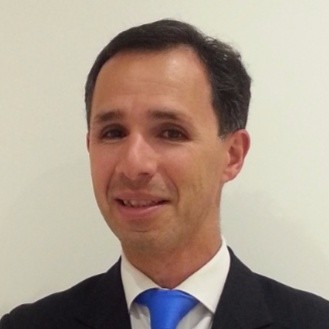
Dr. Eric Benhamou
R&D director
AI for Alpha
Deep Reinforcement Learning for Portfolio Allocation
In 2013, a paper by Google DeepMind kicked off an explosion in Deep Reinforcement Learning (DRL), for games. In this talk, we explain how DRL can also be applied to portfolio allocation given various tricks and adaptation specific to non-stationary data in finance. We present in particular how to Boost DRL.
Eric Benhamou (Ph.D) is the R&D director of the start-up AI for Alpha, since its creation in 2020. He has a mixed profile of researcher, coder and entrepreneur. Before co-founding AI for Alpha, he worked in large groups, in technology (director of content innovation at Thomson Reuters 2013-2016) and in market finance (quant at Goldman Sachs, then head of quantitative research at Natixis). At the end of 2005, he created a startup (Pricing Partners acquired by Thomson Reuters in 2013) developing a software and a proprietary programming language for mathematical models of valuation and risk in market finance.
Eric Benhamou has a versatile profile, with skills in mathematics (PhD in mathematics from the University of Paris Est 2017), economics and finance (Ph.D in economics from the London School of Economics 2000), and artificial intelligence (currently undertaking a PhD in Machine Learning at the University of Paris-Dauphine). He has written numerous scientific papers published on arxiv or ssrn and a book, first in financial mathematics and more recently in statistics and artificial intelligence. He is an alumnus of the Ecole Polytechnique and ENSAE, Paris.
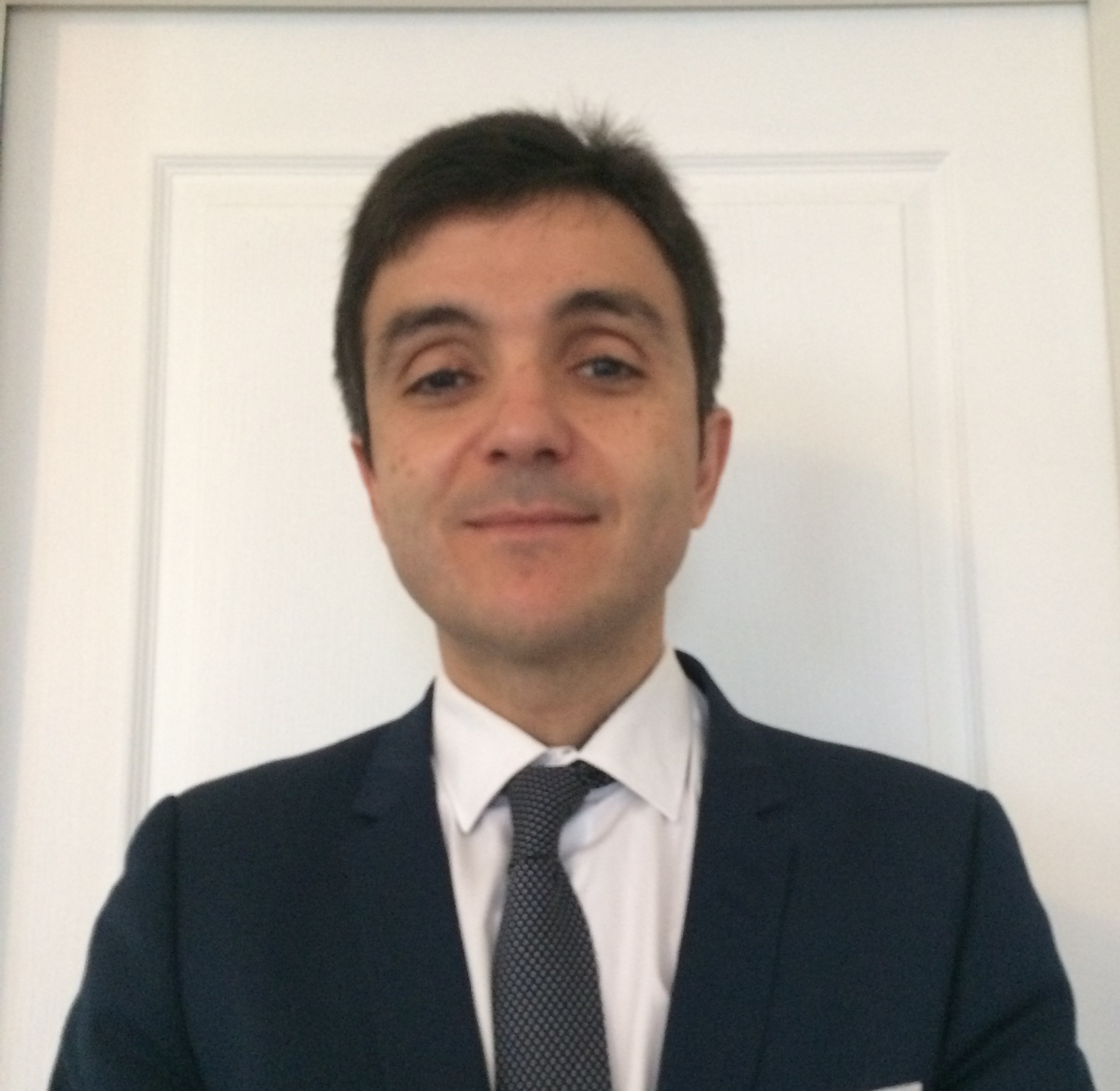
Dr. Adil Reghai
Quantitative Research & Dev Lead
Abu Dhabi Investment Authority (ADIA)
Iterative Bregman Approach for Monte Carlo Enhancement
Improve sampling of your Monte Carlo and match exactly martingale and marginal constraints. A very fast algorithm that improves the overall computation x100 for risk management for stress test and for risk regulation computations. An essential block in the investment toolbox
Adil Reghaï joined Abu Dhabi Investment Authority (ADIA) in 2022 where he is Head of Quantitative Research & Dev Lead. He graduated from Ecole Polytechnique (X92) and Ecole des Mines (P94), Paris. Adil was Head of Quantitative Research at Merrill Lynch, BNP Paribas and Calyon. He has attended conferences on mathematical finance and has written numerous papers and articles. He also gives conferences on mathematical finance in Nice (SKEMA -France), DEA of El Karoui, INSEAD. He is the author of many scientific publications and several books, the latest being: Financial models in production and Financial markets for the million.

Dr. Rolf Poulsen
Department of Mathematical Sciences
University of Copenhagen
We Hold These Truths Not To Be Self-evident
A smorgasbord of new and old things in quantitate finance that may surprise you. Including: Things that are trivial if you don’t think about them too carefully. Things that are paradoxical, inconsistent, or outright impossible. Things that seem impossible, but aren’t. Things that used to be impossible, but aren’t anymore. Things that can happen when parameters go out-of-scope.
Rolf Poulsen has worked (researching and teaching) on a variety of topics in quantitative finance; for instance hedging of exotic options, exchange rate models and markets, and optimal mortgage choice. He is 50 years old and has worked at the Department of Mathematical Sciences at University of Copenhagen in four decades.

Dr. Thomas Barrau
Head of Intraday Research
AXA Investment
Predicting Stock Market Drawdowns using Polymodels
We propose a Systematic Risk Indicator derived from a polymodel estimation. Polymodels allow us to measure the strength of the links that a stock market maintains with its economic environment. We show that these links tend to be more extreme before a market crisis, confirming the well-known increase of correlations while proposing a more subtle perspective. A fully automated and successful trading strategy is implemented to assess the interest of the signal, which is shown to be strongly significant, both from an economic and statistical point of view. Results are robust across different time-periods, for various sets of explanatory variables, and among 12 different stock markets.
Thomas Barrau is Head of Intraday Research for the hedge fund AXA Investment Managers Chorus Ltd. He is leading the development of a portfolio of quantitative intraday trading strategies invested in various asset classes.
With Raphael Douady, he co-authored the book “Artificial Intelligence for Financial Markets: The Polymodel Approach”, published by Springer.
He has been a Senior Quantitative Researcher at AXA IM Chorus, a role during which he developed a team of 4 researchers working on an Equity Market Neutral portfolio. Prior to this, he worked at Societe Generale as banker and financial advisor to small businesses, and as CFO in an aerospace company. He holds a PhD in Applied Mathematics from Paris 1 Pantheon-Sorbonne University. Previously, he validated with honors three different Masters of Science from Aix-Marseille School of Economics, Ca’Foscari University of Venice and Poitiers IAE.
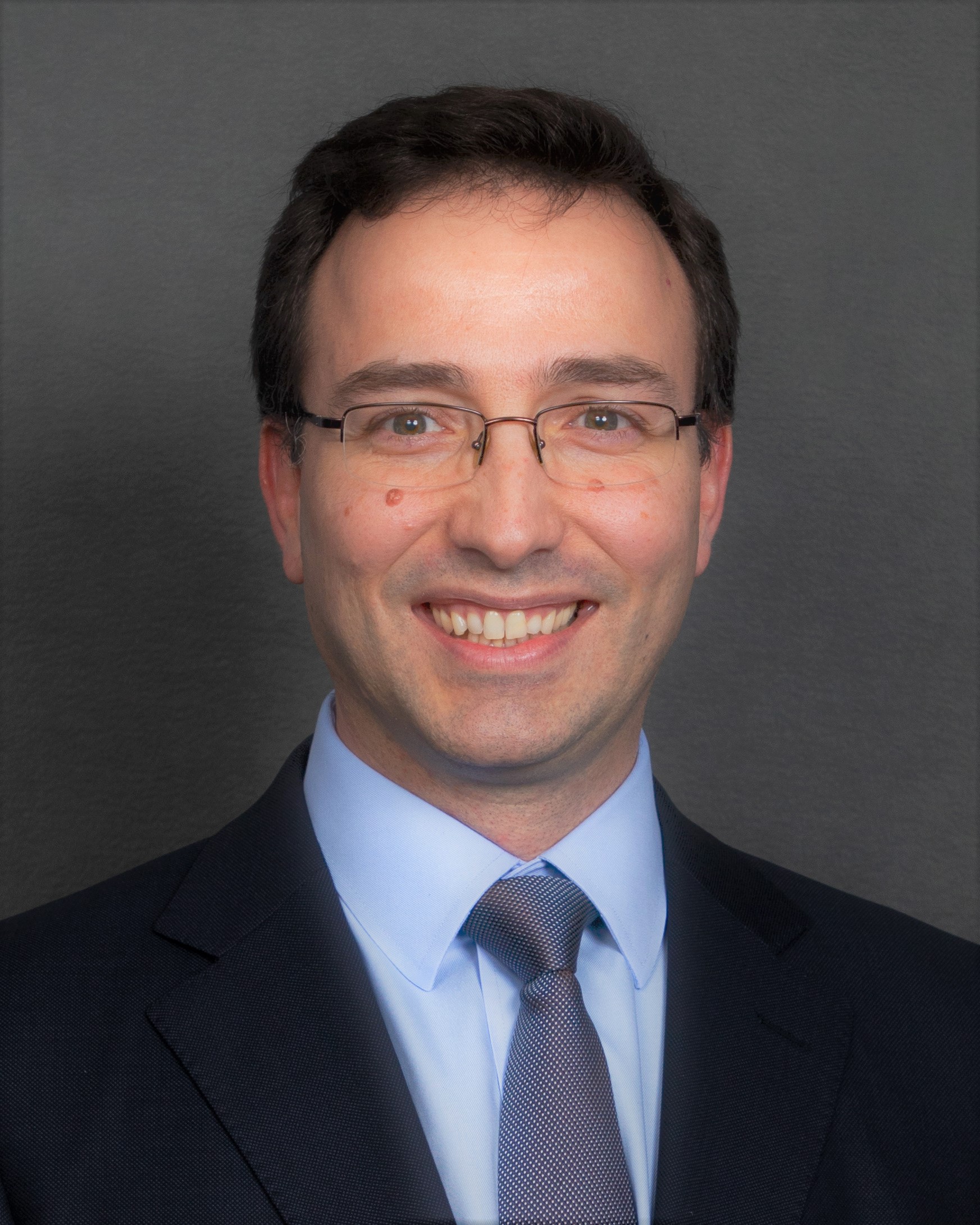
Dr. Carlos Veiga
Director
Bank of America
Market-Maker Hard Exit Thresholds Strategy
Whilst the academic research into the Market-Maker Problem has produced invaluable insights into the optimisation of risk exposure and expected profits, there are still gaps between the state of the art and the problem Market-Makers face in practice. Prominently among these gaps feature the fact that market-makers turn to price-takers more often than theory suggests, as well as the presence of uncertainty regarding price information and liquidity availability. In fact, the latter two account for much of the differences of the Market-Maker Problem across markets. Hence, whatever algorithm for optimal control is put in place, the market-maker often needs to apply pragmatic risk mitigation that attempts to limit, or exclude, outcomes beyond a given severity. In that vein, we derive closed-form expressions to place hard exit thresholds, i.e. stop-loss and take-profit prices levels and maximum holding time. These explicit formulae are for the Brownian motion with drift on an interval, subject to an exponential stopping time and a maximum set time. They are fast enough to be used at runtime in a large range of applications, including electronic trading. Several other problems can be addressed with the formulae presented, e.g. placement of bid and ask prices for a target hit-ratio, portfolio selection or calibration of risk aversion parameters.
Carlos Veiga is a Director in the Quantitative Strategies and Data Group, part of the Global Markets division of Bank of America. Currently he is part of the Data Tools & Solutions group focussing on leveraging the data available at the firm to enhance business performance and risk management. He has had other roles in quantitative analytics ranging from Rates, Equities and FX, as well as Counterparty Credit Risk and Market Risk. He has also ran an Equity Derivatives desk at a large Portuguese bank with business in exotic structured products, listed warrants and certificates and futures arbitrage.
Carlos holds an MSc in Economics and an MSc in Mathematics, both from the New University of Lisbon, and a PhD in Quantitative Finance from Frankfurt School. He has several papers published in academic journals, including Review of Derivatives Research and Applied Mathematical Finance.

Dr. Jürgen Hakala
Managing Director
Leonteq Securities AG
Ticking Away – The Cost of Time Passing
Theta is one of the greeks that appears in many textbooks just after delta, gamma and vega. In the Black-Scholes model it is well understood and is quite central as it links profit and loss of a hedged position to the bill of holding the position. In reality the textbook theta is not the end of the story to understand the time decay of a portfolio of exotics. We will shed some light on the various aspects of the practical determination and usage of theta in non Black-Scholes type models and the link to profit and loss calculations.
Jürgen works for Leonteq Securities AG, where he is involved in modelling and financial engineering for all asset classes. His interests lie in numerical methods in mathematical finance, in particular multi—asset and hybrid modelling, as well as the impact of regulation onto markets and models.
As his PhD was on Neural Networks he recently rediscovered his earlier interest in machine learning methods, now applicable to problems in financial engineering. Initially he worked on foreign exchange, where he co-edited several textbooks and papers.

Dr. Arun Verma
Senior Quantitative Researcher
Bloomberg L.P.
Quantitative Trading Strategies and Asset Pricing using Alternative Data and Machine learning
Machine Learning (ML) and Predictive Analytics are now embedded in a broad variety of use cases in Quantitative Finance, from information extraction to sentiment analysis, from factor scoring models to complex instrument pricing methods, and from risk premium mining to portfolio construction models. ML is also being used for asset pricing, e.g, option pricing or illiquid bond pricing where we need to learn the pricing function using data driven techniques as a further enhancement of methods rooted in stochastic modeling.
Quant traders and data scientists require automated ML & AI technologies to quickly extract actionable information from unstructured and increasingly non-traditional sources of data. We will illustrate the use of such derived signals in constructing promising trading strategies through novel use cases.
This talk will provide a brief overview of the following topics:
- The broad application of machine learning in finance: opportunities and challenges.
- Machine Learning techniques for asset pricing, enhancing complex quant models (i.e., PDE, Monte Carlo) for an efficient pricing of derivative securities and pricing of illiquid securities using data driven methods.
- Collaborative filtering techniques for illiquid instrument pricing, use of data driven cohorts/drivers to inform price movements in a target instrument based on observations on other instruments in the market.
Arun heads the Bloomberg Quantitative Research Solutions Team. Arun’s work initially focused on Stochastic Volatility Models for Derivatives & Exotics pricing/hedging and more generally around asset pricing using traditional quantitative finance methods. More recently, he has enjoyed working at the intersection of diverse areas such as data science, innovative quantitative finance models and using AI/Machine Learning methods to help reveal embedded signals in traditional & alternative data such as Company Financials, ESG, News/Social, Supply Chain, Geolocational & Extreme Weather and their potential impact on capital markets. Most recently in an attempt to complete a full circle, he has been exploring use of ML methods in asset pricing , e.g. Derivatives pricing and illiquid instrument pricing.
Prior to joining Bloomberg, he earned his Ph.D from Cornell University in the areas of computer science and applied mathematics and a B. Tech in Computer Science from IIT Delhi, India. Arun is also an editorial board member of The Journal of Financial Data Science.

Dr. Anmar Al Wakil
Senior Data Scientist
RavenPack
Pricing the Market Impact of Credit Events in Corporate Bonds
In this presentation, we evaluate the impact of credit-related announcements on corporate bond prices, conditioning news on past bond performance and news sentiment. We find:
- A “surprise” effect: Conditioning credit ratings, equity actions, and stock prices on good news and poor past performance generates significant positive abnormal bond returns. Conditioning credit ratings, analyst ratings, and price targets on bad news and good past performance generates long-lasting outperformance.
- A “buy the rumor, sell the news” effect: Conditioning credit ratings, equity actions, analyst ratings, price targets, and stock prices on good news and good past performance generates negative abnormal bond returns.
A combined strategy outperforms: A strategy excluding good announcements associated with good past performance while targeting unexpected events outperforms the unconditional strategy and individual strategies. The combined strategy generates annualized returns of 200 bps above the annual credit benchmark at a two-day effective holding period, and 90 bps at the one-week holding period, compared to 50 bps for the unconditional strategy.
Anmar is a senior data scientist at RavenPack. Before joining RavenPack in 2021, he worked as a quantitative researcher at Natixis Investment Managers for nearly 8 years, where he developed systematic investment strategies within the technology platform. At RavenPack, Anmar excavates cutting-edge insights from news sentiment to elaborate alpha-generating strategies across equity, credit, and derivatives instruments. In addition, he advices some of the world’s top hedge funds and asset managers on the use of NLP-driven analytics in finance.
He holds a PhD in Quantitative Finance from the University of Paris Dauphine-PSL along with a Master’s degree in Mathematical Finance. Anmar has written articles in portfolio selection and machine learning that were presented in multiple conferences. His article about asset pricing won the Best Doctoral Paper of the Multinational Finance Society. He is also a part-time Associate Professor at the University of Paris-Est where he heads the MSc in Portfolio Management.

Dr. Martin Schlüter
Quant Consultant
Deloitte

Merlin Rulff
Consultant
Deloitte
Modeling of Clean Energy Markets and Valuation of PPAs
The energy transition from fossil towards renewable energy sources is a major disruption of the way energy is procured. Key stakeholder are energy intense companies that face the challenges posed by the energy transition and the general goal of decarbonization. Looking ahead, generation capacity will be dominated by fluctuating renewable energies such as wind, solar and hydropower, which will lead to increased uncertainty in market prices.
As feed-in-tariffs are phasing out, we see a significant growth in the use of power purchase agreements (PPAs) for renewable energy generation. PPAs are one way to manage the risk arising from uncertainty about future market prices, as they lock in future energy at a stable more predictable price for a long time period. In order to manage the risk effectively with PPAs, precise pricing and risk assessment of PPAs is essential.
We will present an overview on PPAs including typical contract structures, as well as a discussion on energy market modeling for the purpose of PPA pricing. Moreover, we show how linear PPAs are priced in practice and give an insight into our current work on spot price models and their calibration in the context of non-linear PPA valuation.
Martin Schlüter is a consultant for quantitative finance at the financial engineering group of Deloitte Germany. His current work is centered around the development of stochastic models for the pricing of power purchase agreements. He received his PhD in electrical engineering in 2021 from the Technical University Dresden, where his research focused on stochastic models and statistical signal processing for wireless communication systems.
Merlin Rulff is a working student and future consultant for quantitative finance at the financial engineering group of Deloitte Germany. He is currently writing his master’s thesis on the development of stochastic spot price models for the pricing of power purchase agreements at the Christian-Albrecht-University of Kiel in quantitative finance.

Dr. Olivier Guéant
Professor of Applied Mathematics
Université Paris 1
Dealing with Multi-Currency Inventory Risk in FX Cash Markets
In FX cash markets, market makers provide liquidity to clients for a wide variety of currency pairs. Because of flow uncertainty and market volatility, they face inventory risk. To mitigate this risk, they typically skew their prices to attract or divert the flow and trade with their peers on the dealer-todealer segment of the market for hedging purposes. This paper offers a mathematical framework to FX dealers willing to maximize their expected profit while controlling their inventory risk. Approximation techniques are proposed which make the framework scalable to any number of currency pairs.
Olivier Guéant is Professor of Applied Mathematics at Université Paris 1 Panthéon-Sorbonne and Adjunct Professor of Quantitative Finance at ENSAE. He leads the team “Modélisation Financière” at the Centre d’Economie de la Sorbonne (a group of 8 researchers and around 10 PhD students). His research interests are mainly related to optimal execution and market making.
In particular he developed cutting-edge models that are used by dealers on OTC markets (notably in FX and corporate bonds markets). He was awarded the Rosemont-Demassieux Prize for his PhD on mean field games in 2010 and the EIF/FBF prize for the best paper in finance in 2016 along with Charles-Albert Lehalle.

Alexander González Evans
Business Development
BCC Group
Complex Event-Processing, Real-Time Pricing and ad-hoc Signal Generation using Bloomberg’s b-pipe.
In this talk we will present an easy way to create prices and alerts from streaming Bloomberg real-time data.
We will demonstrate how using a complex event processing engine like Calcnode, can produce hundreds and thousands
of real-time calculated prices in real-time while simultaneously evaluating incoming data to create signals and alerts.
The solution is currently deployed at a Moroccan bank, and will be used to distribute real-time prices via Bloomberg contribution.
Prices and signals created by Calcnode are then immediately available on Bloomberg terminals.
Alexander González Evans started his journey at BCC Group in 2021.
He leads business development in the D-A-CH region and is partially responsible for partnership accounts around the world.
Alexander graduated from the University of Nottingham with a degree in Political Science and currently pursues his PhD at the University of Gießen,
focusing on long-term development of citizens’ attitudes towards democratic politics in advanced industrialised societies.
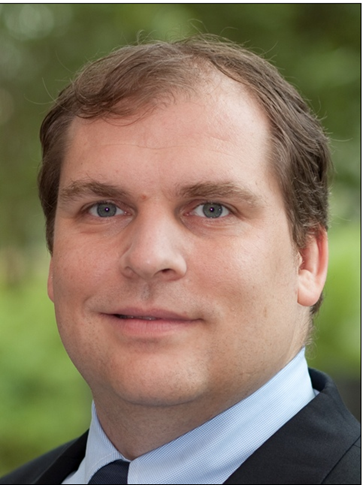
Bert Stafenbiel
Senior Manager
KfW
Digital Assets – Status Quo of German Banks
Advantage German Regulation Framework for Digital Assets
Bert Stafenbiel is currently working as a Senior Manager for KfW in Frankfurt am Main. His tasks at KfW encompass looking into new technology & new work methods and how they can be implemented into the treasury department. Since 2016 Bert is looking into the topic of Distributed Ledger Technology (DLT)/Blockchain. He was the lead project manager in the Distributed Ledger Technology project – European Commercial Paper – together with Commerzbank and MEAG in 2017. He has gained insides in several DLT projects. Bert is also a mentor in the DeFi- and Bitcoin-Talents Program from the Blockchain Center at Frankfurt School of Finance & Management. Prior to his shift looking into new technology, he has work as Portfolio Manager in ABS and ABCP. From 2007 to 2010 he worked as a portfolio manager in the Structured Credit unit at Deka Investment GmbH. He started his career at the credit rating agency Fitch Ratings in the field of securitisation. Bert holds a business administration degree at Universität Potsdam as well as a Master of Science in “Risk Management & Regulation” at Frankfurt School of Finance & Management.

Viktor Banh
DekaBank
Digital Assets – Status Quo of German Banks
Advantage German Regulation Framework for Digital Assets
Viktor Banh is currently in the Digital Assets Markets Team at the DekaBank. He joined DekaBank in 2009 and worked there in different departments (Riskmanagement, Business Manager Markets). Since 2018, he is working on DLT-/ Blockchain related topics (Digital Collateral Protocol, SWIAT, Electronic Securities, Digital Assets Custody).
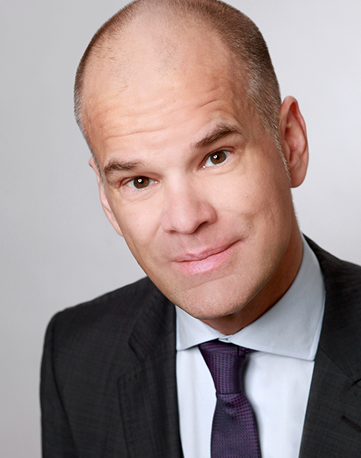
Christian Pfannkuchen
Senior Sales- and Account Manager
Deutsche Börse Goup
Digital Assets – Status Quo of German Banks
Advantage German Regulation Framework for Digital Assets
Christian Pfannkuchen is currently working as a Senior Sales- and Account Manager for 360T (Deutsche Börse Goup). He joined 360T in 2014 after working at various banks in Frankfurt. His main focus has been on FX. Since 2014 his focus shifted additionally towards new products, i.e. digital currencies. Christian holds a bachelor degree from the Frankfurt School of Finance.

Dr. Uwe Wystup
Managing Director
MathFinance AG
Uncle Herbert’s Savings Plan with Bonus and the Legal Aftermath
Bonus savings plans in Germany go back to the 1990, and many retail investors own legacy contracts that entitle them to a base interest plus a 50% bonus on the amount saved every year. Banks try to cancel these contracts, consumers and courts argue about the interest reference rate and how to apply it. We shed some light on the interest rates and the legal framework.
Uwe Wystup is managing director of MathFinance AG, Professor of Financial Option Price Modeling and Foreign Exchange Derivatives at University of Antwerp and Honorary Professor of Quantitative Finance at Frankfurt School of Finance & Management, certified expert for interest rate and currency risk management at Frankfurt’s Chamber of Commerce, honorary judge at Frankfurt Commercial Court and the State Financial Court. Before, he has actively worked in FX derivatives trading as Financial Engineer, Global Structured Risk Manager and Advisor since 1992, including Citibank, UBS, Sal. Oppenheim and Commerzbank. He is one of the few hybrids in the world working in the intersection of the derivates market and academic research. Uwe earned his PhD in mathematical finance from Carnegie Mellon University, is currently He acts internationally as expert witness and mediator in financial disputes. In his consulting work he has advised many leading banks and companies in the world including DBS, OCBC, Deka, GPS, Moneycorp, ICY Software, Murex, SuperDerivatives, Refinitiv, Pictet, La Caixa, DWS, Union Investment, NordLB, LBBW, AXA, Natixis, Reserve Bank of India and many others.
His first book Foreign Exchange Risk was published in 2002, quickly became the market standard and has also been translated into Mandarin. His second book FX and Structured Products appeared in 2006, followed by a second edition in 2017. Many of his papers appeared in scientific journals. See https://www.mathfinance.com/publications/ for publications.

Dr. Thorsen Schmidt
Senior Financial Engineer
MathFinance
Post-Libor interest rate markets
Overnight rates, such as the SOFR (Secured Overnight Financing Rate) in the US, play a central role in the current reform of interest rate benchmarks. A striking feature of overnight rates is the presence of jumps and spikes occurring at predetermined dates, as a result of monetary policy interventions and liquidity constraints. This corresponds to stochastic discontinuities (i.e., discontinuities occurring at ex-ante known points in time) in the dynamics of overnight rates. In this work, we propose a term structure modelling framework in the presence of overnight rates and characterize absence of arbitrage in a generalised Heath-Jarrow-Morton (HJM) setting. By extending the classical short-rate approach to the case of stochastic discontinuities, we develop a tractable setup driven by affine semimartingales. In this context, we show that simple specifications allow to capture stylized facts of the jump behavior of overnight rates. In a Gaussian setting, we provide explicit valuation formulas for bonds and caplets. Finally, we investigate hedging in the sense of local risk-minimization when the underlying term structures exhibit stochastic discontinuities.
This is joint work with Claudio Fontana and Zorana Grbac
Thorsten Schmidt is Professor for Mathematical Stochastics at University Freiburg (successor of Ernst Eberlein) and Senior Financial Engineer at MathFinance. From 2017-2019 he was fellow of the Freiburg institute of Advanced Studies (FRIAS). Prior to this he was professor for Mathematical Finance at Chemnitz University of Technology since 2008, held a replacement Professorship from Technical University Munich in 2008 and was Associate Professor at University of Leipzig from 2004 on.
Moreover, he was guest professor at ETH Zurich and at Université d’Evry. His Ph.D. he obtained from University in Giessen in 2003 on credit. He is Associate Editor for Mathematical Finance, International Journal of Theoretical and Applied Finance and was Associate Editor for Journal of Banking and Finance and Statistical and Probability Letters. He is an elected member of the International Statistical Institute and was member of the Board of Fachgruppe Stochastik of the German Mathematical Society.
He has published numerous articles in Mathematical Finance and Probability in internationally leading journals and is frequently presenting on conferences around the world on his latest research. In particular, he is a well-known scientist in the area of affine models, interest rates, credit risk, incomplete information, risk management, filtering, and insurance mathematics. He has a strong background in statistics and information technology and teaches probability, mathematical finance and machine learning at the university of Freiburg.

Dr. Martin Simon
Professor of Data Science
Frankfurt UAS / MathFinance
Do All Roads Lead to Paris?
In this talk we discuss portfolio construction under climate risk constraints. The first part of the talk is introductory, reviewing the idea of portfolio temperature alignment metrics and the concept of EU Paris-aligned Benchmarks (PABs). The second part is based on recent research highlighting the necessity of uncertainty quantification in temperature alignment metrics.
Martin Simon is a professor in the field of Data Science at Frankfurt University of Applied Sciences, a Docent in Computational Finance at Lappeenranta-Lahti University of Technology and a Senior Financial Engineer at MathFinance AG. He has years of experience working in the financial industry primarily specializing in risk management, derivatives valuation and asset management. His research aims to bridge the gap between novel ideas and technologies developed in academia and industrial applications. He currently holds a research professorship funded by the German Federal Ministry of Education and Research focused on the development of robust, highly efficient tools for quantitative financial climate risk management.
